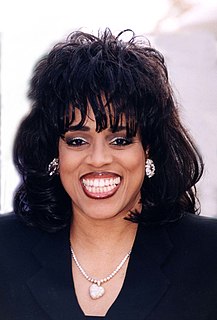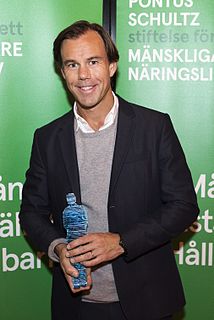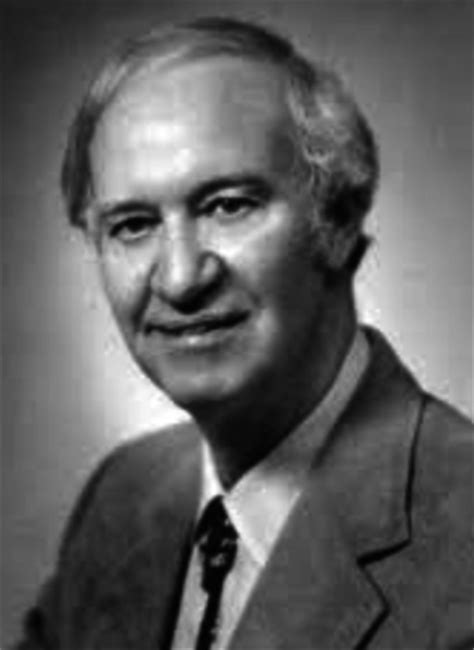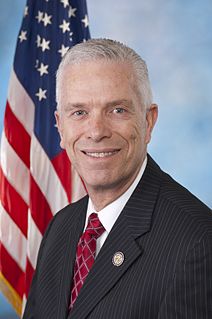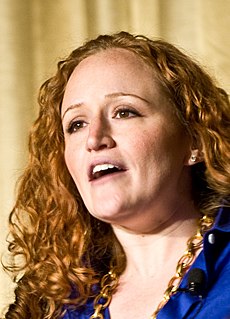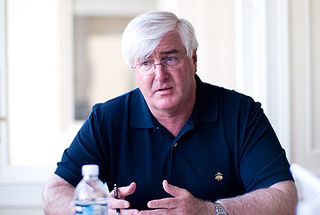A Quote by Vickie Winans
If I can learn how to manage myself, why would I give you 20 percent and people are looking for me? It just doesn't make sense.
Related Quotes
You know how some people will say to writers, "Why don't you just write a romance novel that sells a bunch of copies and then you'll have the money to do the kind of writing you want to do"? I always say that I don't have the skills or knowledge to do that. It would be just as hard for me to do that kind of writing as it would be to learn how to do any number of productive careers that I can't manage to make myself do.
Ninety-nine percent of everyday things are things we don't need - that goes for regular visits to the hairdresser just as it does for clothing. What would it mean if we all consumed 20 percent less? It would be catastrophic. It would mean 20 percent less jobs, 20 percent less taxes, 20 percent less money for schools, doctors, roads. The global economy would collapse.
We will learn no matter what! Learning is as natural as rest or play. With or without books, inspiring trainers or classrooms, we will manage to learn. Educators can, however, make a difference in what people learn and how well they learn it. If we know why we are learning and if the reason fits our needs as we perceive them, we will learn quickly and deeply.
God has called us into a place of tenderness, when nobody is looking, when there are no great decisions to make, when it’s just him and me in a hotel room, with no one to pray for, no one to preach to. When it is just two people in a room, that’s where you learn. That’s where you learn his heartbeat. That’s where you learn the presence. That’s where you learn the voice. It’s in the moments when nobody is watching, nobody is evaluating how good you’re doing. When it is just you and him.
My therapist told me I need to learn to love myself. It sounds easy enough, but really, how do you just wake up one day and learn that? It feels like something you should just do involuntarily, like swallowing or blinking, but now I have to work on it. It feels so forced. I mean, I know I went to a good school, and people tell me I'm smart and creative, but I don't KNOW that. I don't know how to make myself feel that.
Sometimes I am still surprised that I'm a model and that people think I'm good-looking. I've gone through a lot of different phases on what I do and why I do it - morally and ethically. I've tortured myself about it, especially in dealing with success and money. I just had to learn to look at it as a job, as opposed to identifying myself as a model and thinking of myself as a part of this industry. I just thought, Okay, this is an opportunity to learn and see and meet people. Still, I am a Scorpio and I'm quite competitive.
Economists often talk about the 80/20 Principle, which is the idea that in any situation roughly 80 percent of the “work” will be done by 20 percent of the participants. In most societies, 20 percent of criminals commit 80 percent of crimes. Twenty percent of motorists cause 80 percent of all accidents. Twenty percent of beer drinkers drink 80 percent of all beer. When it comes to epidemics, though, this disproportionality becomes even more extreme: a tiny percentage of people do the majority of the work.
I'm often asked by younger filmmakers, 'Why do I need to look at old movies?' I've made a number of pictures in the last 20 years and the response I have to give them is that I still consider myself a student. The more pictures I've made in 20 years, the more I realize I really don't know. And I'm always looking for something or someone that I could learn from. I tell the younger filmmakers, and the young students, that do it like painters used to do—that painters do—study the old masters, enrich your palette, expand the canvas. There's always so much more to learn.
I have to try to watch myself and give myself feedback. People would take for granted that I was ready to go right away. And I would say, "No, no, no, no, I actually have to go talk to myself." Because I need to just take a minute to think about what just happened and tell myself what to do in the next take, so just give me two minutes to go be a director.
Common sense, to me, is simple. And I've never understood why there aren't a lot of people trying to figure out how the United States became this special place and then try to replicate it around the world, because that's the solution to the human condition. The solution to poverty, the solution to misery, the solution to backwards living is the United States of America. Why not learn how that happened, learn why and how we happened. What is it that made it special?
What I really intend to achieve is to be that fly on the wall, and to try and observe as much as I can without affecting what I've seen. I want to get a sense that what I'm seeing in a place would have happened had I not be there. Were I to make myself an important presence, that would be lost. The danger of a certain other kind of reporting is that people give you what they think you are seeking. People know what you want. When I was traveling in Congo and Rwanda and people asked me what I wanted, I would say, "Nothing. I just want to be here." And that immediately disarmed them.
People ask, 'Why would you cast yourself in your movie?' And, for me, it's more like an achievement that I am now not playing all the parts, you know? Like I was for so long, in all my performances and a lot of my short movies. So, that's where I'm coming from, not out of a kind of actress-y sense of myself. I mean, I don't really see myself as an actress, but more from performance: this is how you make something. You do it yourself. You're in it and you write it. I think I keep doing it that way, 'cause it's my way. It's what makes me feel like I know how to do it.
